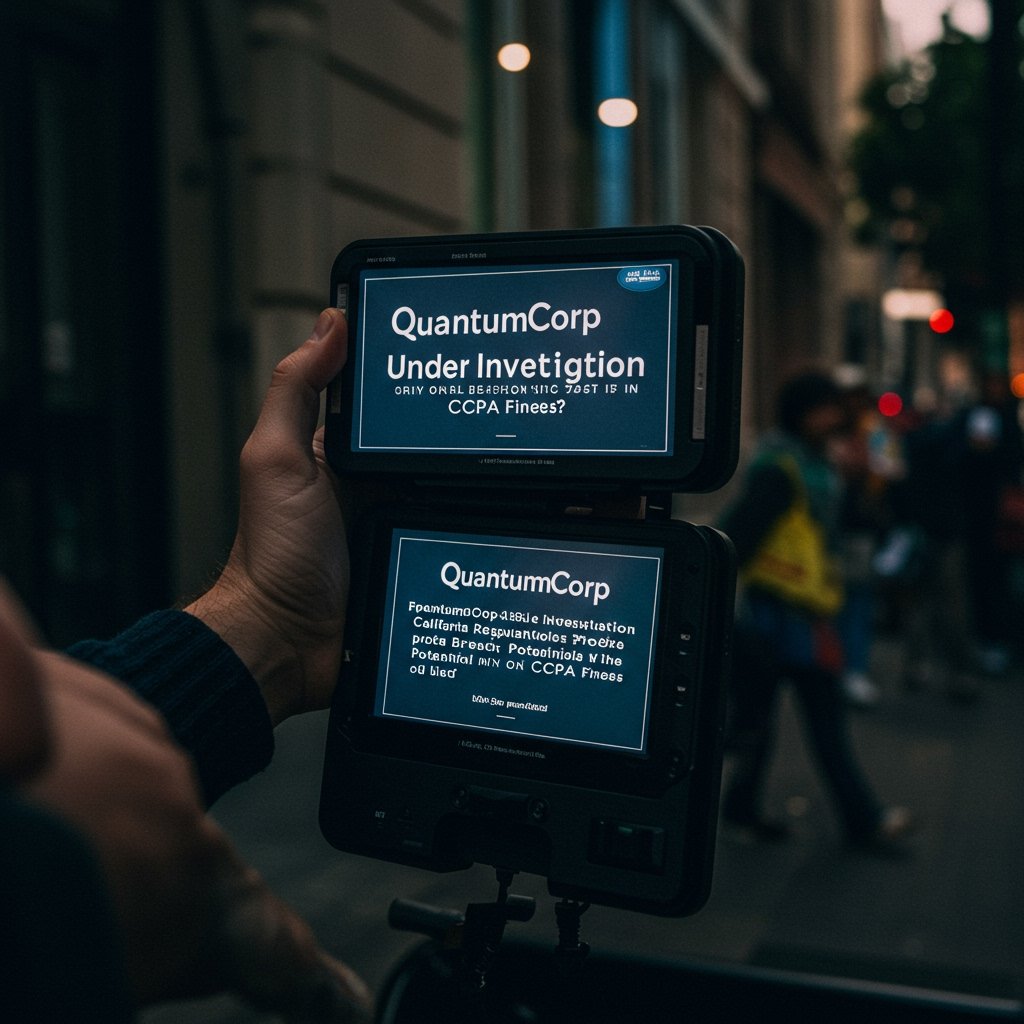California Privacy Protection Agency Launches Major Probe into QuantumCorp Over Data Breach
San Jose, California – The California Privacy Protection Agency (CPPA) has formally initiated a significant investigation into Silicon Valley tech giant QuantumCorp. Headquartered in San Jose, QuantumCorp is facing intense scrutiny following allegations of substantial violations of the California Consumer Privacy Act (CCPA). The core of the probe stems from a widely reported user data breach that occurred in late 2024, an incident that potentially impacted millions of the company’s users.
The CPPA’s action marks a critical phase in the enforcement of California’s stringent data privacy laws. Investigators are specifically delving into QuantumCorp’s data handling practices, examining whether the company adhered to the CCPA’s requirements, particularly concerning the implementation of reasonable security measures to protect user data. The outcome of this investigation carries substantial weight, not only for QuantumCorp but also as a precedent for future enforcement actions by the relatively new agency. Should the CPPA find QuantumCorp liable for violations, the company could face substantial fines, potentially reaching into the billions of dollars.
The Late 2024 Data Breach: Catalyst for the Investigation
The catalyst for the CPPA’s formal investigation is the significant data breach that QuantumCorp disclosed in late 2024. While specific details regarding the nature and extent of the compromised data have been subject to ongoing public discussion and reporting, the sheer scale of the potential impact—affecting potentially millions of users—triggered alarm bells among regulators and privacy advocates. Data breaches of this magnitude expose sensitive personal information, ranging from contact details and browsing history to potentially more critical financial or identity information, depending on the services provided by QuantumCorp.
Under the CCPA, companies that collect and process the personal information of California residents have clear obligations to protect that data. A key component of the law is the requirement for businesses to implement and maintain reasonable security procedures and practices appropriate to the nature of the information to protect it from unauthorized access, destruction, use, modification, or disclosure. The late 2024 breach suggests a potential failure in these fundamental security measures, prompting the CPPA to investigate whether QuantumCorp met this legal standard.
Scope of the CPPA’s Inquiry
The CPPA’s investigation is expected to be comprehensive. Investigators will likely be reviewing a wide array of QuantumCorp’s internal processes, documentation, and technical infrastructure. This includes, but is not limited to:
* Data Collection and Processing Practices: How QuantumCorp collects, uses, stores, and shares user data.
Security Measures: An in-depth examination of the technical, physical, and administrative safeguards QuantumCorp had in place to protect personal information before, during, and after* the late 2024 breach.
* Breach Response: How QuantumCorp detected, responded to, and notified affected users and regulators about the data breach.
* Compliance History: Any prior audits, assessments, or regulatory interactions related to data privacy and security.
The agency will seek to determine if QuantumCorp’s security failures, if any, directly contributed to or enabled the breach. The investigation will also assess whether the company’s overall data handling practices align with the principles of data minimization, purpose limitation, and transparency as outlined in the CCPA.
Potential Consequences: Billions in Fines and Regulatory Precedent
The financial implications for QuantumCorp could be severe. The CCPA allows for significant penalties for violations. For intentional violations, fines can reach up to $7,500 per violation. For unintentional violations, the penalty is $2,500 per violation. Given that the breach potentially impacted millions of users, even a penalty for unintentional violations could quickly escalate into hundreds of millions or even billions of dollars, depending on how a “violation” is defined in the context of a systemic security failure impacting multiple individuals.
This investigation is also a critical test case for the California Privacy Protection Agency. Established to enforce the CCPA and subsequent privacy laws like the California Privacy Rights Act (CPRA), the CPPA has the mandate and the funding to undertake complex investigations against large corporations. A high-profile case involving a major Silicon Valley entity like QuantumCorp provides the agency with an opportunity to demonstrate its enforcement capabilities and set clear expectations for businesses operating in California regarding their data privacy obligations. A substantial fine against QuantumCorp would send a strong message across the tech industry about the importance of robust data security and CCPA compliance.
Industry and User Reactions
The news of the CPPA’s formal investigation has generated significant discussion within the tech industry and among privacy advocates. For users, it underscores the ongoing risks associated with sharing personal data with large online platforms and highlights the importance of regulatory oversight. For other companies, the QuantumCorp probe serves as a stark reminder of the need to prioritize data security and actively ensure compliance with evolving privacy regulations like the CCPA.
QuantumCorp has yet to issue a detailed public statement specifically on the CPPA’s formal investigation, though they have previously addressed the late 2024 data breach generally. As the investigation proceeds, more information is expected to emerge regarding the findings and potential outcomes. The process could take several months, potentially longer, given the complexity of assessing the security practices of a large tech company and the scale of the data breach involved. The tech world and privacy landscape will be closely watching the developments in this significant regulatory action.


















